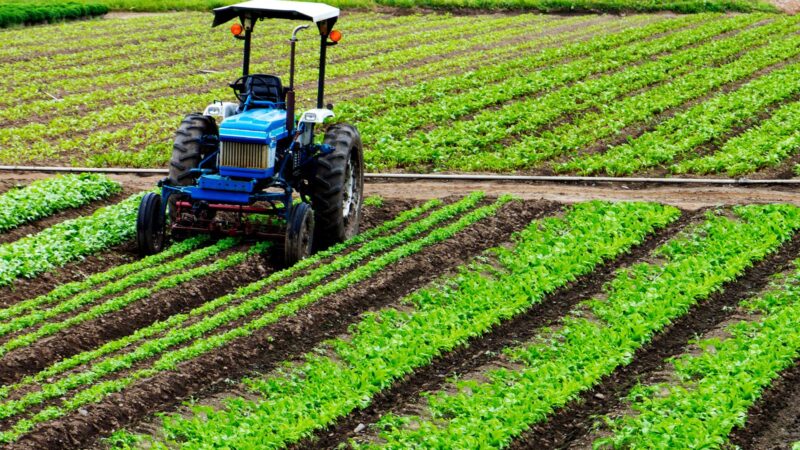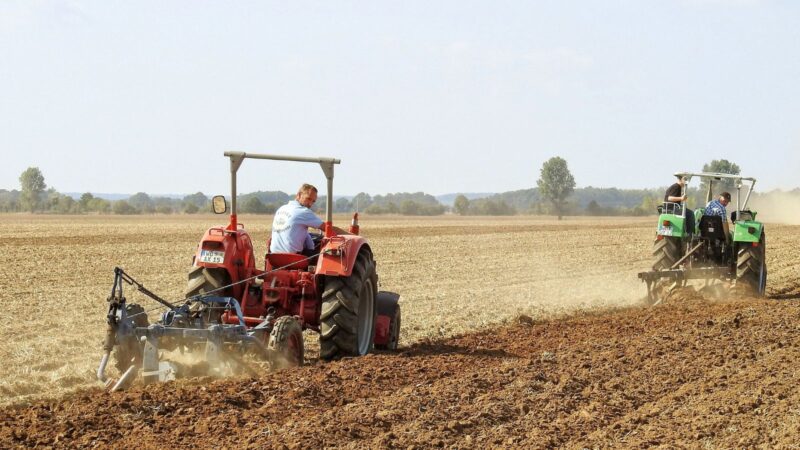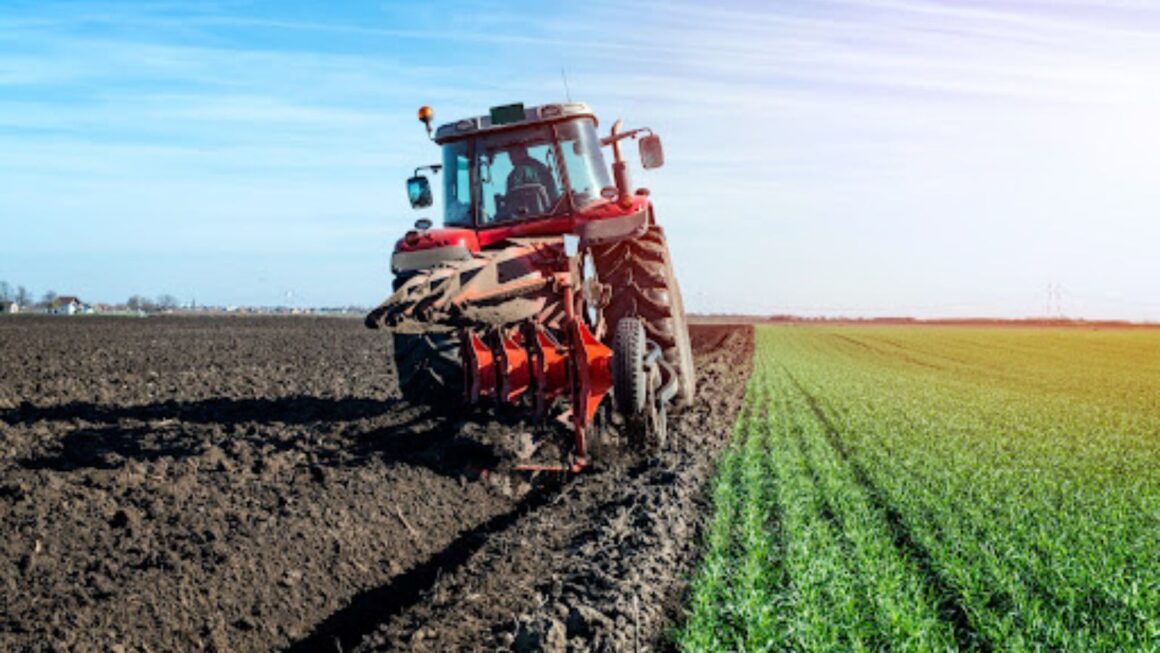The importance of agriculture is impossible to overestimate, not just for the food industry and environment preservation but for economic and social development worldwide. However, as farmers keep working hard to increase their output, it becomes more and more critical to consider the impacts they cause on nature. The issue is that intensive farming methods exacerbate the effects of climate change and the pressures of a growing global population.
Turning to sustainable solutions could be an excellent choice in this situation, ensuring the preservation of farmland for future generations. Nevertheless, achieving this is not without obstacles: reliance on external inputs for immediate gains, access to modern technology in developing countries, financial concerns, and more. Despite this, the pros definitely outweigh the drawbacks. Let’s explore them in more depth.
Crop Yield Prediction
Yield’s quality and quantity are the biggest indicators of a farming season’s success. That is why crop yield estimation using remote sensing is a tool all modern growers should consider integrating. This practice leverages advanced technologies to provide accurate forecasts of crop production, empowering farmers to make informed decisions that maximize yield while minimizing waste. Satellite imagery, drones, and sophisticated data analytics are at the forefront of this innovation. By analyzing factors such as soil health, weather patterns, and crop conditions in almost real time, these technologies offer invaluable data on agricultural fields, enabling agronomists to anticipate yield outcomes with remarkable accuracy.

Overall, smart crop yield forecasting means a more efficient allocation of resources, reducing the overuse of water, fertilizers, and pesticides, which in turn promotes sustainable farming practices. Additionally, it aids in mitigating the risks associated with climate variability, providing farmers with the foresight to adapt to changing conditions. The integration of machine learning algorithms and Internet of Things (IoT) devices further enhances this capability, transforming raw data into actionable insights. As a result, conducting yield estimation upfront, farmers can optimize planting schedules, manage crop health proactively throughout the season, and ultimately secure a great harvest.
Timely And Quality Monitoring
By utilizing drones equipped with multispectral sensors, satellite imagery, and IoT-enabled sensors, farmers can meticulously monitor various parameters such as soil moisture, nutrient levels, and crop health. These technologies provide a continuous stream of data, allowing for immediate identification of issues such as pest infestations, diseases, or nutrient deficiencies. Armed with all this critical data, growers can respond accordingly to mitigate potential problems, ensuring the quality and yield of their produce remain uncompromised.
The importance of timely and quality monitoring cannot be overstated. It ensures smarter management, where interventions are precise and minimal, preserving the integrity of the surrounding ecosystem. Advanced technologies like AI-powered analytics and blockchain for traceability further augment this practice, providing transparent and trustworthy records of crop health and management practices. This not only enhances food safety and quality but also allows for building consumer trust.
Degrading Land Management
The decline of arable land poses a significant threat to modern agriculture and the food industry. Without effective land management strategies, persistent intensive farming can lead to severe soil erosion, depletion of nutrients, and loss of fertility. As organic matter diminishes and soil structure breaks down, the land’s productivity declines, putting crop yields and long-term sustainability at risk.
Addressing this issue requires a focus on sustainable land management techniques. Employing practices like cover cropping, crop rotation, and reduced tillage is essential for maintaining soil health, minimizing erosion, and enhancing soil nutrient levels.
Reliable Meteorological Data
Modern farmers have no shortage of tools at their disposal to create optimal microclimates for their crops. Strategies such as greenhouses, hoop-houses, hydroponic systems, and advanced irrigation methods are now commonplace among modern growers. These technologies allow for precise control over the growing environment, enhancing crop resilience and productivity.
New advancements, including in-field sensors, play a pivotal role in this transformation. They monitor a variety of weather parameters such as temperature, sunlight, relative humidity, and soil moisture. The data collected is fed into online dashboards, providing farmers with both historical and real-time information. This comprehensive data integration empowers field owners to make informed decisions, tailor their practices to current conditions, and ensure sustainable and efficient crop management.
Adapting To Challenges
Adopting cutting-edge innovations like precision agriculture technologies is essential for remaining effective and competitive in modern farming. More so, it’s important to generate wider support, deeper insight, and greater recognition of the difficulties farmers encounter. It could be working with policymakers, funding related educational programs, and increasing public awareness about agriculture’s role in society and its current struggles.
By combining these approaches, agricultural experts can better manage the complexities of modern farming. Overall, fostering resilience through forward-thinking methods and strategic collaborations guarantees a sustainable and thriving future for both the industry and the environment.
Why Sustainable Agriculture
Eco-friendly farming provides multiple advantages, helping to reduce environmental footprint, increase profits, and build a strong public image in consumers eyes. Therefore, it allows farming organizations to play a role in creating a greener future while enjoying the benefits of a robust, adaptable agricultural industry.

One key advantage is an enhanced brand reputation. In today’s market, consumers increasingly seek out environmentally responsible and socially conscious businesses. Supporting sustainable agriculture positions businesses as leaders in sustainability, boosting customer loyalty, positive word-of-mouth, and competitive edge.
Additionally, sustainable agriculture promotes supply chain resilience. Practices that prioritize soil health, biodiversity, and water conservation create a robust and stable supply chain. By backing farmers who adopt these methods, businesses can secure a consistent supply of high-quality raw materials, reducing the risk of disruptions due to environmental challenges like droughts, pests, or soil degradation. Furthermore, crop yield estimation using remote sensing can enhance planning and logistics, ensuring that businesses are better prepared for market demands and fluctuations.
Moreover, sustainable farming practices focus on optimizing resource use, reducing waste, and minimizing inputs like water, energy, and pesticides. Supporting such practices can lead to significant cost savings and increased operational efficiency for businesses.
From enhancing brand reputation and ensuring supply chain resilience to achieving cost savings and operational efficiency, businesses that commit to sustainable farming practices play a crucial role in fostering a sustainable future while enjoying the benefits of a robust agricultural system.
Autor:
Vasyl Cherlinka is a Doctor of Biosciences specializing in pedology (soil science), with 30 years of experience in the field. With a degree in agrochemistry, agronomy and soil science, Dr. Cherlinka has been advising on these issues private sector for many years.



